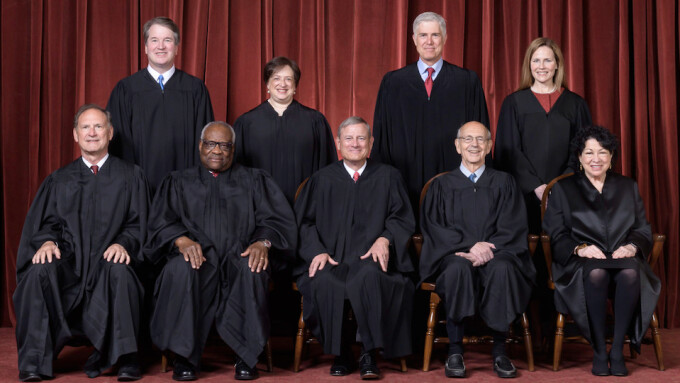WASHINGTON — In an unusual 5-4 vote that did not follow ideological lines, the Supreme Court has temporarily blocked a controversial Texas social media law that would have made social media platforms liable for moderating content based on what the law defined as “viewpoints.”
The Republican-backed law was drafted with the full support of Texas governor Greg Abbott as an answer to conservative and other right-wing complaints about supposed “liberal bias” in platform moderation, including the lifetime Twitter ban of former president Donald Trump.
Today, the Supreme Court blocked the law from taking effect “until a Fifth Circuit challenge of the legislation has been decided,” legal news site Law360 reported.
The split vote “reinstated a lower court order blocking enforcement of the Texas social media law known as HB 20, which prohibits certain ‘censorship’ or viewpoint discrimination by large internet platforms such as Twitter and Facebook.”
The five justices who blocked the law were Roberts, Kavanaugh, Barrett, Sotomayor and Breyer.
Liberal Justice Elena Kagan dissented, denying the application to vacate stay; conservative Justices Alito, Thomas and Gorsuch dissented for different reasons.
As XBIZ reported, the law had been upheld earlier this month by a peculiar 5th Circuit decision which was communicated without any explanation as to the court’s reasoning and with two of the judges remaining anonymous.
Last week, the 11th Circuit Court of Appeals issued a ruling that blocks the major provisions of a similarly controversial social media law in Florida, backed by Gov. Ron DeSantis, which also would have held social media platforms liable for moderation policies in the name of political, but not sexual, "free speech."
Both the Texas and Florida laws opened the door to lawsuits accusing online platforms of "viewpoint discrimination," an ill-defined term with dubious legal standing. It is mostly used by conservatives and the U.S. right wing, who claim they are being censored on social media — though some of the same politicians and right-wing activists advocating against what they call "corporate" censorship also demand a return to state-driven censorship of sexual expression via obscenity prosecutions, and consider LGBTQ+ content to be "pornography."







